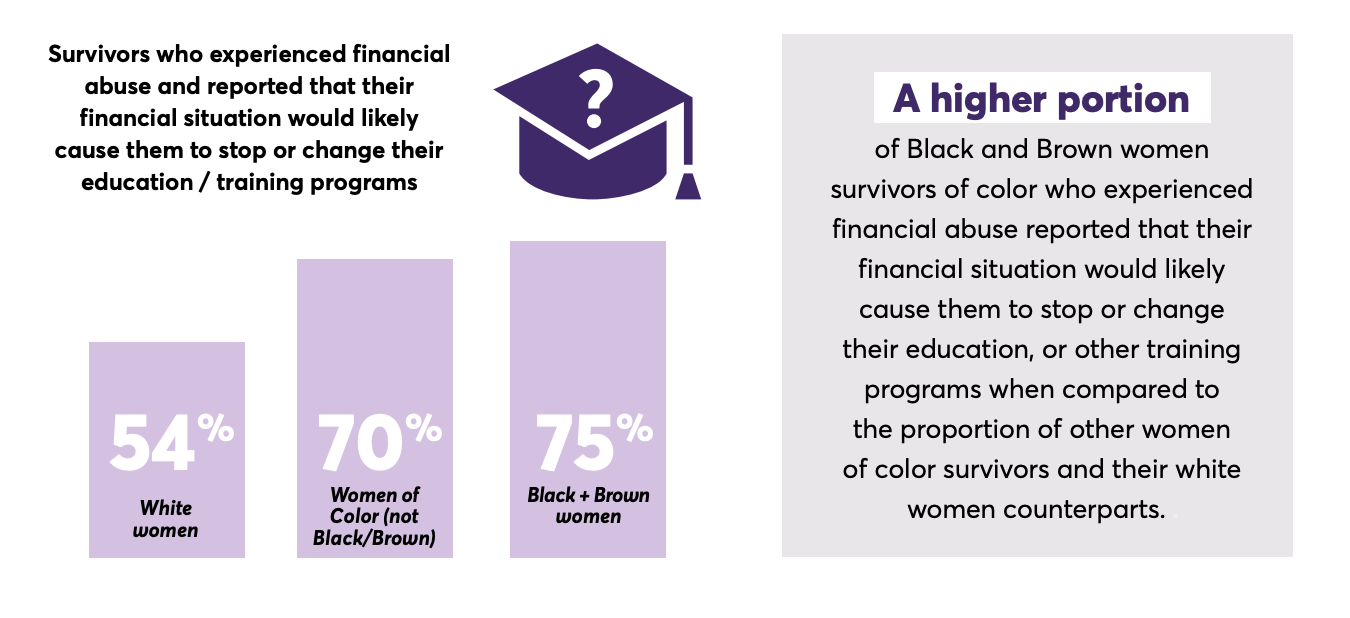COVID Causes Long-Term Harm for Sexual Violence Survivors of Color: Report

While studies have shown the financial cost of being a Black and Latinx survivor of sexual and intimate partner violence is high, a new report stresses that these groups are particularly vulnerable in the COVID-19 crisis. A new report called Measuring the Economic Impact of COVID-19 on Survivors of Color, released Wednesday (November 18) by ‘me too.’ International in partnership with FreeFrom, examines the short and long-term effects of the pandemic on this already vulnerable population.
The resulting data, while sobering isn't surprising. It shows that sexual violence survivors of color are more likely than their white counterparts to face financial, housing and physical insecurity.
According to preliminary data:
- Survivors of color are especially at risk of facing pronounced food and housing insecurity during the COVID-19 pandemic.
- Financial insecurity is greatest among Black and Brown women survivors.
- Black and Brown women survivors were at the greatest risk of being unable to pay multiple bills due to the financial impacts of COVID-19.

An emailed summary of the report highlights some of the key findings:
- Survivors who experienced landlord sexual coercion were 39% more likely to experience food and housing insecurity than those who did not.
- A higher proportion of women survivors of color who experienced financial abuse reported that their financial situation would likely cause them to stop or change their education, or other training programs (75%) when compared to the proportion of their white women counterparts (54%).
- The proportion of Black and Brown women survivors who were unable to pay multiple bills due to COVID-19 was more than twice that of survivors who were white women or non-Black and Brown women of color.
“When it comes to issues such as safe and affordable housing, mental health support, and economic insecurity, survivors of sexual violence are most at risk, with Black and Brown survivors experiencing a ‘collision of crises’ that were already detrimental to communities of color,” ‘me too.’ founder and executive director Tarana Burke said in a statement. “COVID-19 has placed a spotlight on the ways in which our social and economic safety net catches some while allowing those who are most vulnerable to fall through the cracks.”
This study found that women of color who lack financial means during the pandemic are far more likely to return to an abusive partner out of necessity. The Huffington Post reports: “A woman who reported a high likelihood of returning to her abuser had access to an average of $3,700; a survivor who reported no likelihood of returning to her abuser had roughly $8,300 available.”
“This report makes clear we are facing a pandemic of economic and physical insecurity among survivors, particularly survivors of color,” Congresswoman Jackie Speier, co-chair of the Democratic Women’s Caucus, said in an emailed statement. “As Republican dysfunction and callous disregard stifle relief efforts, survivors are struggling to put food on the table and keep a roof over their heads. Those with fewer financial resources are tragically reporting a higher likelihood of returning to an abusive partner, likely out of necessity. We can’t sugarcoat what this means: women’s lives are under dire threat because our government is abdicating its responsibility to provide necessary resources for domestic violence shelters, nutrition assistance, child care, housing, and unemployment compensation. It’s not only a policy catastrophe but also a moral failure, and survivors are paying the price.”
The study also highlights how COVID-19 exacerbates the strain of health care inequality, housing and employment for survivors of color. As The Huffington Post notes, “Eight out of 10 essential workers of color are facing food and housing insecurity, and nearly 75% of Black and brown survivors said they were forced to stop their education due to the pandemic.”
Click here to read the full report.
